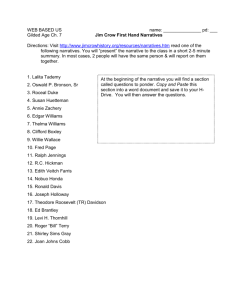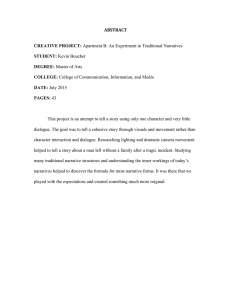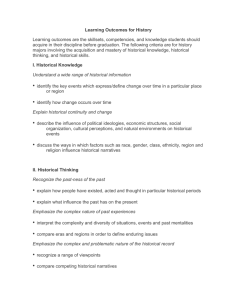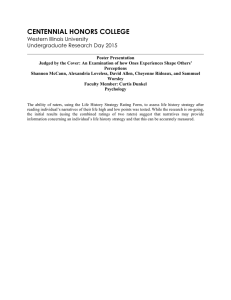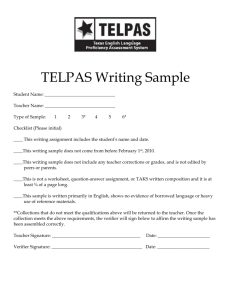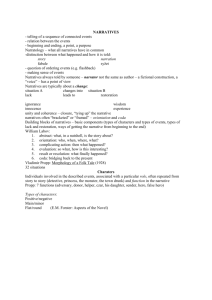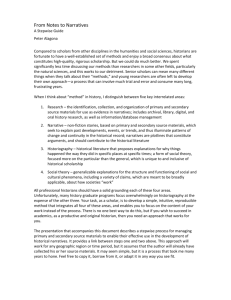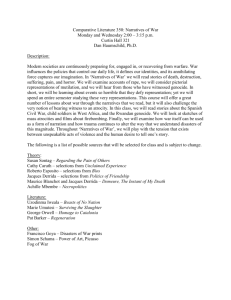Crafting Health Promotion Narratives: Childhood Obesity Prevention among Mexican-
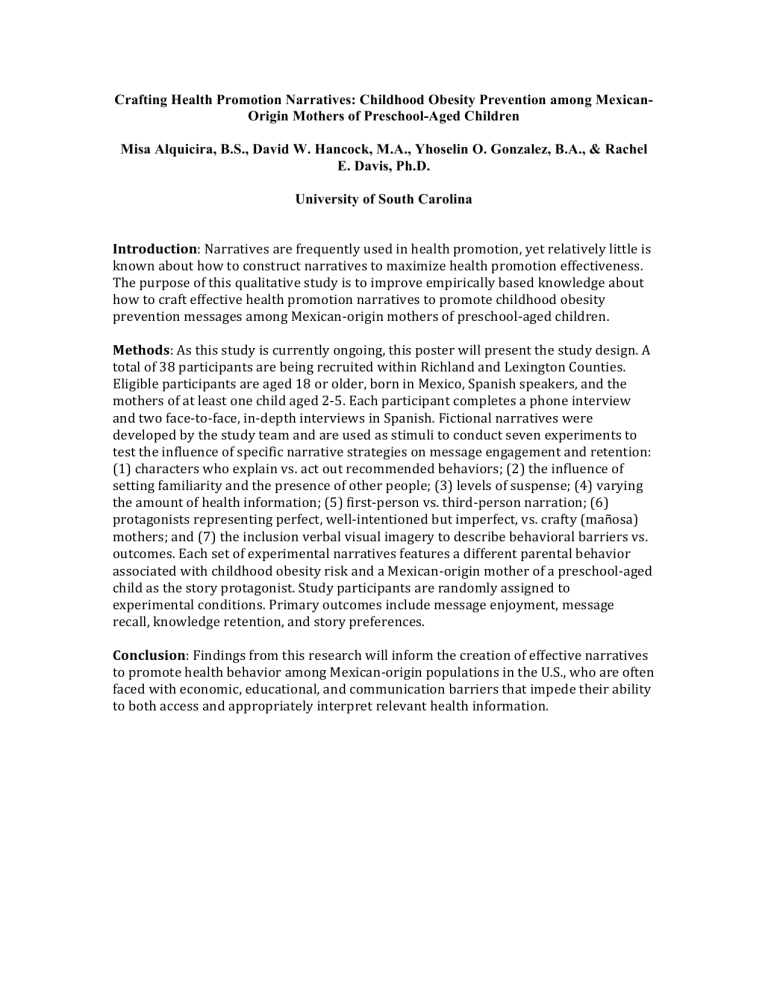
Crafting Health Promotion Narratives: Childhood Obesity Prevention among Mexican-
Origin Mothers of Preschool-Aged Children
Misa Alquicira, B.S., David W. Hancock, M.A., Yhoselin O. Gonzalez, B.A., & Rachel
E. Davis, Ph.D.
University of South Carolina
Introduction : Narratives are frequently used in health promotion, yet relatively little is known about how to construct narratives to maximize health promotion effectiveness.
The purpose of this qualitative study is to improve empirically based knowledge about how to craft effective health promotion narratives to promote childhood obesity prevention messages among Mexican-‐origin mothers of preschool-‐aged children.
Methods : As this study is currently ongoing, this poster will present the study design. A total of 38 participants are being recruited within Richland and Lexington Counties.
Eligible participants are aged 18 or older, born in Mexico, Spanish speakers, and the mothers of at least one child aged 2-‐5. Each participant completes a phone interview and two face-‐to-‐face, in-‐depth interviews in Spanish. Fictional narratives were developed by the study team and are used as stimuli to conduct seven experiments to test the influence of specific narrative strategies on message engagement and retention:
(1) characters who explain vs. act out recommended behaviors; (2) the influence of setting familiarity and the presence of other people; (3) levels of suspense; (4) varying the amount of health information; (5) first-‐person vs. third-‐person narration; (6) protagonists representing perfect, well-‐intentioned but imperfect, vs. crafty (ma ñ osa) mothers; and (7) the inclusion verbal visual imagery to describe behavioral barriers vs. outcomes. Each set of experimental narratives features a different parental behavior associated with childhood obesity risk and a Mexican-‐origin mother of a preschool-‐aged child as the story protagonist. Study participants are randomly assigned to experimental conditions. Primary outcomes include message enjoyment, message recall, knowledge retention, and story preferences.
Conclusion : Findings from this research will inform the creation of effective narratives to promote health behavior among Mexican-‐origin populations in the U.S., who are often faced with economic, educational, and communication barriers that impede their ability to both access and appropriately interpret relevant health information.

